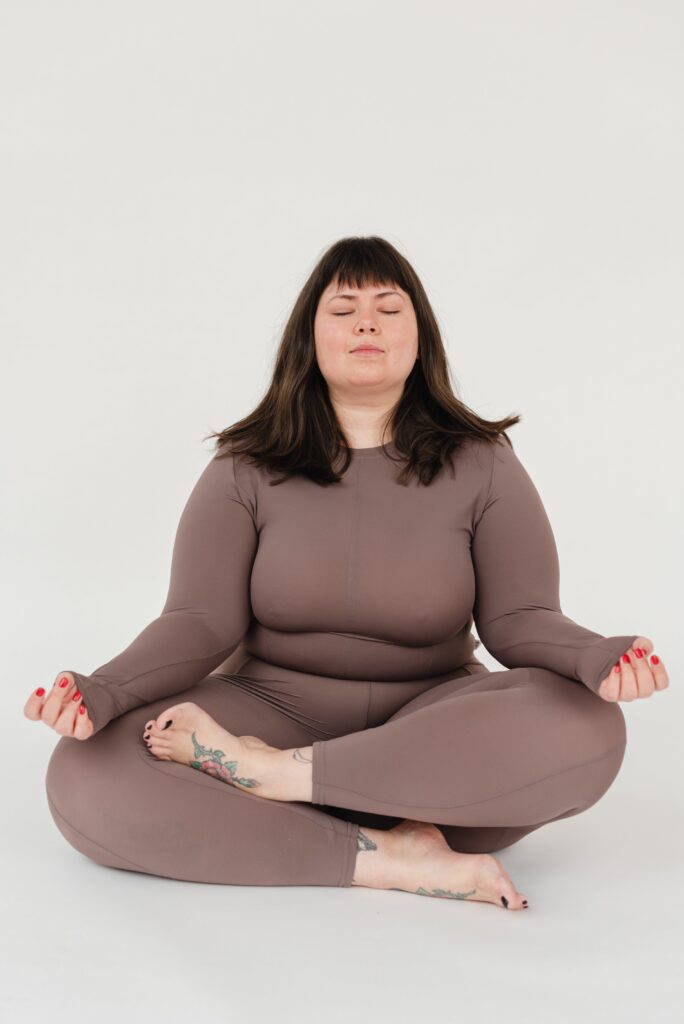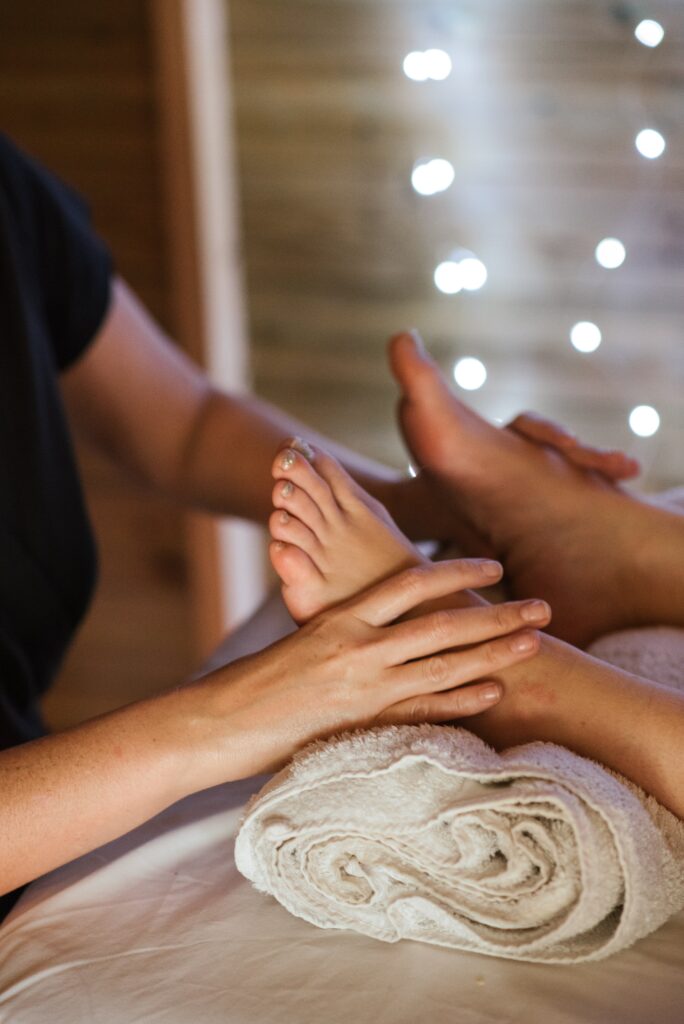What Are Effective Stress-relief Techniques For Daily Life. Living in today’s fast-paced world can be overwhelming, and stress has become an inevitable part of our daily lives. We all experience it, but finding effective techniques to alleviate stress can be a game-changer. In this article, you will discover a range of stress-relief techniques that you can easily incorporate into your daily routine. From mindfulness meditation to exercise and self-care, these techniques will help you find balance, reduce stress, and bring more calmness into your life. So, sit back, relax, and let’s explore the world of effective stress-relief techniques together.
Physical Techniques
When it comes to relieving stress, physical techniques can have a significant impact on your well-being. One of the most effective methods is exercise. Engaging in regular physical activity not only helps to reduce stress levels but also improves your overall mood. Whether it’s going for a run, practicing yoga, or participating in a team sport, exercise releases endorphins, which are known as the “feel-good” hormones. These endorphins help to improve your mood, increase energy levels, and promote a sense of well-being. So, if you find yourself feeling stressed, make sure to fit in some exercise and experience the benefits firsthand.
Another physical technique that can help you relax and reduce stress is deep breathing. Taking slow, deep breaths can activate your body’s relaxation response, which helps to calm your mind and relieve tension. Deep breathing encourages the flow of oxygen throughout your body, promoting a sense of calmness and relieving stress. To practice deep breathing, find a quiet place where you can sit comfortably, close your eyes, and take a slow, deep breath in through your nose. Hold your breath for a few seconds, then exhale slowly through your mouth. Repeat this process several times, focusing on the sensation of your breath flowing in and out of your body. Deep breathing can be done anywhere and at any time, providing you with a quick and effective way to alleviate stress.
Progressive muscle relaxation is another physical technique that can help you effectively manage stress. This technique involves tensing and then relaxing different muscle groups in your body to release tension and promote relaxation. By systematically tensing and relaxing each muscle group, you can bring awareness to the physical sensations of your body and let go of any built-up tension. To practice progressive muscle relaxation, start by finding a comfortable position and focus on your breathing. Beginning with your toes, slowly tense the muscles in your feet, hold for a few seconds, and then release. Continue moving up your body, tensing and relaxing each muscle group, from your calves to your thighs, abdomen, shoulders, and so on. By the time you reach your head, you’ll likely notice a greater sense of relaxation and decreased muscle tension.
Mindfulness Techniques
Mindfulness techniques can be incredibly effective in reducing daily stress and promoting a sense of calmness and clarity. One popular mindfulness technique is meditation. Meditation involves focusing your attention and eliminating the stream of thoughts that may be causing you stress. By allowing yourself to be fully present in the moment, you can cultivate a sense of peace and release any worries or anxieties. There are various forms of meditation, including guided meditation, where you follow along with a recorded or live instructor, and mindfulness meditation, where you focus on your breath or the sensations in your body. By incorporating meditation into your daily routine, even for just a few minutes a day, you can experience significant stress reduction.
Yoga is another mindfulness technique that combines physical movements, breathing exercises, and meditation. With origins in ancient Indian philosophy, yoga has become increasingly popular in the Western world as a holistic approach to stress relief. Practicing yoga not only helps to improve flexibility and strength but also encourages mindfulness and relaxation. Through the combination of postures, controlled breathing, and meditation, yoga can help calm your mind and reduce stress. Whether you attend a yoga class or follow along with online tutorials, incorporating yoga into your daily routine can provide a much-needed respite from the demands of daily life.
Tai Chi is a gentle martial art that originated in ancient China and has since gained recognition for its stress-relieving benefits. Like yoga, Tai Chi combines physical movements with deep breathing and mindfulness. The slow and deliberate movements of Tai Chi promote relaxation, improve balance and coordination, and reduce stress. By practicing Tai Chi regularly, you can cultivate a greater sense of inner peace, improve your physical well-being, and manage stress more effectively.

Creative Techniques
Engaging in creative activities can be an excellent way to reduce stress and foster self-expression. Art therapy, for example, uses various art forms as a means of communication and emotional release. Whether it’s painting, drawing, sculpting, or any other artistic medium, art therapy allows you to express your feelings and emotions in a non-verbal way. Creating art can help you gain a deeper understanding of yourself, reduce anxiety, and promote a sense of relaxation and well-being.
Writing is another creative technique that can serve as an effective stress-relief tool. Writing in a journal or even engaging in creative writing activities helps to unload your thoughts and emotions onto paper, providing a sense of release and clarity. Whether you write about your day, your worries, or your aspirations, the act of putting pen to paper can be incredibly therapeutic. Additionally, engaging in creative writing exercises or poetry can help you tap into your imagination and provide an outlet for self-expression.
Music therapy is yet another creative technique that can help reduce stress and promote emotional well-being. Listening to soothing music or playing an instrument can have a significant impact on your mood and stress levels. Music has the power to evoke emotions and transport you to a different mental state. By incorporating music into your daily routine, you can experience a sense of relaxation and tranquility. Whether it’s playing soft background music while you work or attending live concerts, music therapy can serve as a powerful stress-relief technique.
Social Techniques
When stress becomes overwhelming, seeking support from loved ones or professionals can make a world of difference. Spending time with loved ones can provide a sense of comfort and connection. Whether it’s enjoying a meal together, engaging in shared hobbies, or simply having a conversation, being in the presence of those who care about you can help alleviate stress. Surrounding yourself with a supportive network of friends and family members can provide emotional support, encouragement, and a sense of belonging.
In addition to spending time with loved ones, talking to a friend or therapist can be immensely beneficial when it comes to managing stress. Sharing your thoughts and feelings with a trusted confidant can help you gain perspective, process emotions, and find solutions to challenges. Friends can offer a listening ear and provide a different viewpoint, while therapists are trained professionals who can guide you through the process of understanding and managing stress. Whether it’s seeking advice, venting, or simply engaging in a meaningful conversation, talking to someone can provide the support you need when stress becomes overwhelming.
Another social technique for stress relief is joining a support group. Support groups bring together individuals who are experiencing similar challenges, providing an understanding and empathetic community. The shared experiences and perspectives within a support group can help you feel less alone and provide a space for open discussion and emotional support. Support groups can be found in various settings, both in person and online, catering to specific issues such as grief, addiction, anxiety, and more. By joining a support group, you can connect with others going through similar experiences, gain valuable insights, and receive support during times of stress.

Lifestyle Techniques
Your lifestyle plays a significant role in your stress levels and overall well-being. Incorporating certain techniques into your daily routine can help minimize stress and promote a healthier lifestyle. One essential lifestyle technique is time management. Having a well-structured schedule and managing your time effectively can reduce the feeling of being overwhelmed and increase productivity. By prioritizing your tasks and setting realistic goals, you can allocate your time more efficiently and minimize stress-inducing situations.
Prioritization is another lifestyle technique that can help you manage stress. By identifying and focusing on what truly matters to you, you can avoid unnecessary stress and overwhelm. Prioritizing tasks, activities, and commitments allows you to allocate your time and energy in a way that aligns with your values and goals. By intentionally saying no to certain demands and prioritizing self-care, you can create a more balanced and fulfilling life.
Setting realistic goals is vital for stress management. Unrealistic or overly demanding goals can lead to feelings of failure and increased stress. By setting achievable goals, you can build a sense of accomplishment and maintain a positive outlook. Breaking larger goals into smaller, more manageable tasks can also help reduce stress and increase motivation. Striving for progress rather than perfection can help you maintain a healthier perspective and reduce unnecessary stress in your daily life.
Cognitive Techniques
Cognitive techniques focus on changing your thoughts and mindset to promote stress relief. One cognitive technique is positive self-talk. Positive self-talk involves replacing negative or self-critical thoughts with positive and affirming statements. By challenging negative self-perceptions and replacing them with more compassionate and supportive thoughts, you can improve your self-esteem and reduce stress. When faced with stressful situations, reframing your thoughts to focus on solutions and opportunities rather than problems and limitations can also help alleviate stress.
Reframing is a cognitive technique that involves looking at a situation from a different perspective. By shifting your mindset and focusing on the positive aspects or potential growth opportunities, you can alter your emotional response to stress. Reframing can help you reframe challenges as opportunities for personal growth and reduce the negative impact of stress on your mental well-being.
Practicing gratitude is another effective cognitive technique for stress relief. By cultivating a mindset of gratitude and appreciating the positive aspects of your life, you can shift your focus away from stress and towards the things that bring you joy and fulfillment. Regularly practicing gratitude through journaling or taking a moment each day to reflect on what you’re grateful for can help rewire your brain to notice and appreciate the small pleasures in life.

Relaxation Techniques
When stress takes its toll, incorporating relaxation techniques into your daily routine can provide a reprieve and promote a sense of calmness. One simple relaxation technique is taking a hot bath or shower. The warm water can help relax your muscles and release tension, while the quiet and uninterrupted time allows you to focus on self-care. This time alone can be an opportunity to de-stress, unwind, and recharge.
Aromatherapy is another relaxation technique that can help alleviate stress. Certain scents, such as lavender, chamomile, and bergamot, have calming and soothing properties. Incorporating essential oils or scented candles into your environment can create a tranquil atmosphere and promote relaxation. Inhaling these soothing scents can help calm your mind, reduce anxiety, and minimize stress.
Guided imagery is a relaxation technique that involves using your imagination to create soothing mental images. By visualizing calm and peaceful scenes, such as a beach or a serene forest, you can evoke feelings of relaxation and tranquility. Guided imagery can be practiced through recorded meditations or by creating your own mental images. By engaging your senses and immersing yourself in these peaceful imaginings, you can experience a sense of escape from stress and promote a more relaxed state of being.
Nature Techniques
Spending time in nature has long been recognized as a powerful tool for stress reduction and overall well-being. Going for outdoor walks, especially in natural settings such as parks or forests, can help calm your mind, improve your mood, and reduce stress levels. The fresh air, greenery, and sounds of nature can provide a healing and grounding experience. Whether it’s a leisurely stroll or a brisk walk, make time to connect with nature and embrace the benefits it offers.
Gardening is another nature technique that can help reduce stress and promote a sense of calm and well-being. The act of tending to plants, whether it’s planting, weeding, or nurturing them, can be incredibly therapeutic. Gardening allows you to connect with nature, engage in a mindful activity, and enjoy the beauty of growing things. Whether you have a large garden or simply tend to a few potted plants, incorporating gardening into your daily routine can provide a sense of relaxation and fulfillment.
Nature sounds can also play a significant role in stress relief. Listening to the sound of birds chirping, waves crashing, or leaves rustling in the wind can have a calming effect on your nervous system. By incorporating nature sounds into your environment, either by spending time outdoors or using recordings, you can create a serene atmosphere that promotes relaxation and reduces stress.

Time-Out Techniques
In the midst of a hectic day, taking a time-out can be a valuable stress-relief technique. Reading, for example, allows you to escape into a different world and shift your focus away from stressors. Whether it’s diving into a captivating novel, exploring a self-help book, or indulging in a magazine or article, reading can provide a much-needed break and promote relaxation.
Watching a movie or TV show can also serve as a stress-relief technique. Immersing yourself in a captivating story can help transport you to a different place and time, allowing you to temporarily let go of stress. Whether it’s a comedy, drama, or any genre that you find enjoyable, giving yourself permission to relax and enjoy some screen time can provide a much-needed mental break.
Taking a nap can be an effective way to recharge and relax. When stress builds up, taking a short nap can help you reset and regain energy. By giving yourself a break from the demands of the day, you can promote a sense of physical and mental relaxation. Just make sure to keep your nap short and avoid napping too close to bedtime, as it may disrupt your sleep schedule.
Health Techniques
Taking care of your overall health is essential for effective stress management. Proper sleep plays a crucial role in your well-being and can significantly impact your stress levels. When you’re well-rested, you’re better equipped to handle stress and maintain a positive mindset. Aim for a consistent sleep schedule, create a relaxing bedtime routine, and ensure your sleeping environment is conducive to quality sleep. By prioritizing sleep, you can improve your overall well-being and better manage stress.
Maintaining a healthy diet is another health technique that can support stress reduction. Eating a balanced diet, rich in fruits, vegetables, whole grains, lean proteins, and healthy fats, can provide your body with the nutrients it needs to function optimally. Proper nutrition can help stabilize your mood, promote mental well-being, and reduce stress levels. Additionally, avoid excessive caffeine and alcohol consumption, as these substances can worsen stress and disrupt sleep patterns.
Limiting caffeine and alcohol intake is especially important when it comes to stress management. While a cup of coffee or a glass of wine may provide temporary relief, excessive consumption can negatively affect your sleep quality and overall stress levels. Caffeine is a stimulant that can increase anxiety and disrupt sleep patterns, while alcohol is a depressant that can disrupt the quality of sleep and lead to increased stress. Moderation and mindful consumption of caffeine and alcohol can help support a healthier lifestyle and minimize stress.
Incorporating stress-relief techniques into your daily life can bring about significant improvements in your overall well-being. By exploring and implementing these techniques, you can effectively manage stress, enhance your emotional resilience, and lead a more balanced and fulfilling life. Remember, stress is a normal part of life, but with the right tools and support, you can navigate it with grace and find peace amidst the chaos. So take a deep breath, embrace these stress-relief techniques, and prioritize your mental and physical well-being. You deserve it!

